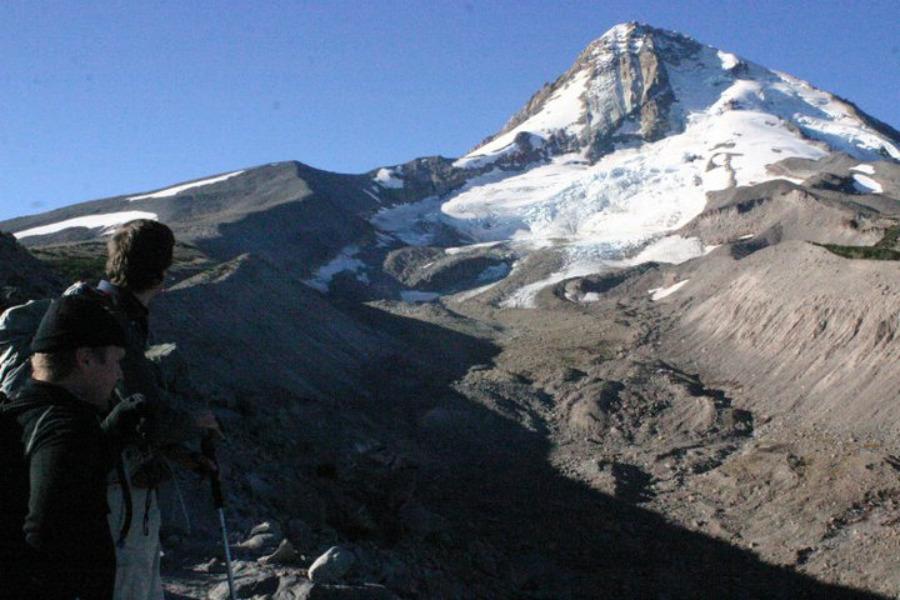
A view from the edge of the Eliot Creek drainage, looking up toward the glacier.
OPB
Climbers and hikers in the Pacific Northwest have seen first-hand how our glaciers have been shrinking in recent decades. But, until now, scientists couldn’t prove those changes were due to climate change.
Scientists have long known that, globally, glaciers are shrinking because of climate change. But looking at individual glaciers is a different matter, says Gerard Roe, a professor of earth and space sciences at the University of Washington.
“Because of their complications,” he explains, “glaciers might just be a bit messy on the landscape and have large fluctuations even if the climate wasn’t changing.”
Watch A video of the melting Easton Glacier
So Roe and his colleagues designed a technique to separate the long-term effects of climate change from the year-to-year influences of weather. It's "kind of a unique way to look at how glaciers are responding to climate and deserves a lot of attention," says Andrew Fountain, a glaciologist at Portland State University who was not involved in the study.
Roe’s team looked at 37 glaciers in different regions throughout the world, estimated their natural variability, and concluded that, for all of those glaciers, “their retreat is far, far, far larger than we would expect from natural fluctuations,” Roe says.
In other words, “glaciers are very clear indicators of climate change, specifically climate warming,” Fountain says.
So all of those side-by-side photos of glaciers? We can now say it’s certain the changes are caused by climate change.
